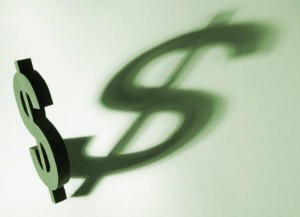The High Price of Education
Whether attending undergraduate, graduate, or trade school, the majority of students take out some form of public or private loan to help finance their education. These loans typically carry a low (relatively speaking) interest rate, and do not need to be paid back until months after the student has graduated.
 But what if the student can’t pay the loan back once the bills start rolling in? An interesting fact to keep in mind is this startling figure: since 2000, college costs have rise 23% while the earnings of recent graduates has declined 11%. Sounds like a recipe for disaster.
But what if the student can’t pay the loan back once the bills start rolling in? An interesting fact to keep in mind is this startling figure: since 2000, college costs have rise 23% while the earnings of recent graduates has declined 11%. Sounds like a recipe for disaster.
Take the case of Francisco Espinosa. He took out student loans to attend an Arizona trade school for computer drafting. After four years of working, he had not advanced beyond his job as an airline ramp agent. He now owes $13,250 in student debt. His case is being heard by the Supreme Court which is looking at whether it should be easier for students, who file for bankruptcy, to get that debt discharged.
Student loans, like child support, alimony, criminal and traffic fines, and taxes are debts that are generally not discharged in a bankruptcy proceeding. Federal law says no student loan may be wiped out through bankruptcy unless the student proves an “undue hardship” in a court hearing with the institution that loaned the money.
But the term “undue hardship” is very ambiguous and that is one of the things the Supreme Court will hopefully clarify in their review of Francisco Espinosa’s case. There is also the possibility that they may get rid of the undue hardship analysis and make student loans a part of the general bankruptcy application.
One study noted that it takes 10 to 20 years for bankruptcy filers to reach the same financial status as their peers. That figure is especially heartbreaking for those individuals with student loans; they were going to school to get ahead, but because of bad finances, a bad economy, and other factors, it will take them decades just to break even!
A recent LegalMatch study revealed a range of bankruptcy-related inquiries, many of which involved wanting to file for bankruptcy to discharge many of the non dischargeable financial obligations listed above- including student loans. Knowing what you can and cannot discharge should be a major factor in applying for bankruptcy. Also, familiarizing yourself with alternatives to bankruptcy should also be a part of any applicant’s considerations.
In my opinion, student loans should go through some type of greater analysis when deciding whether they should be discharged in a bankruptcy proceeding. I don’t know if that necessarily means showing an “undue hardship” but rather showing that attempts were made to get the job you went to school for! This should be a very interesting case to follow.

Comments